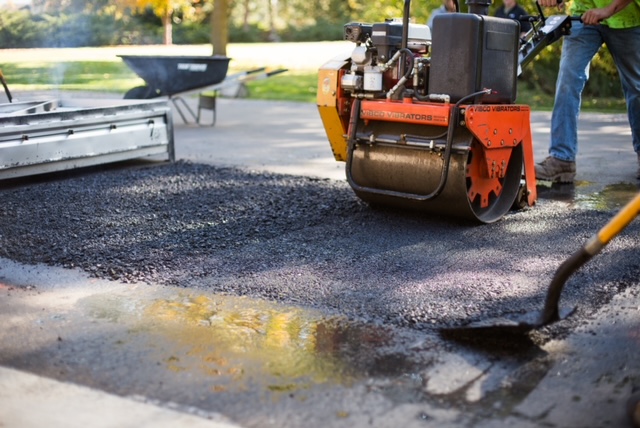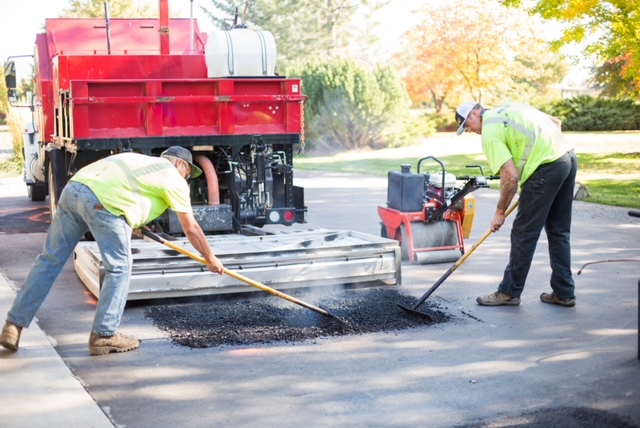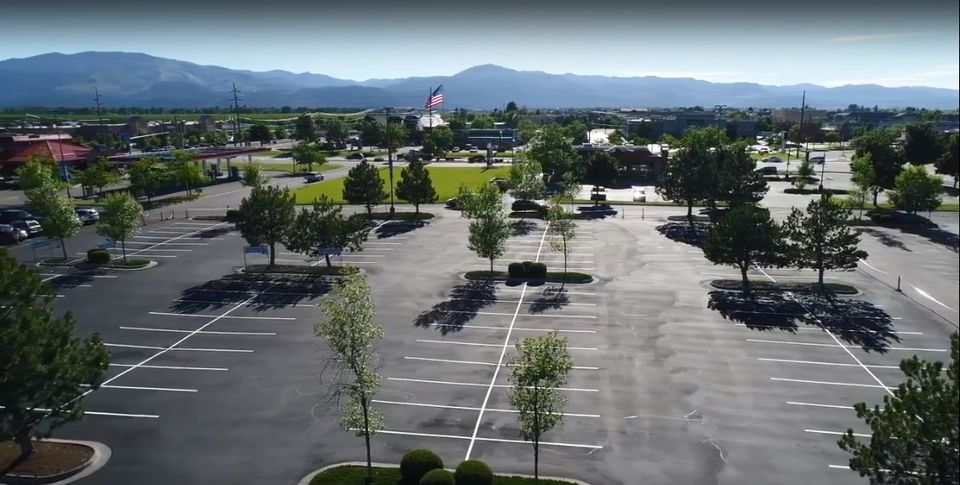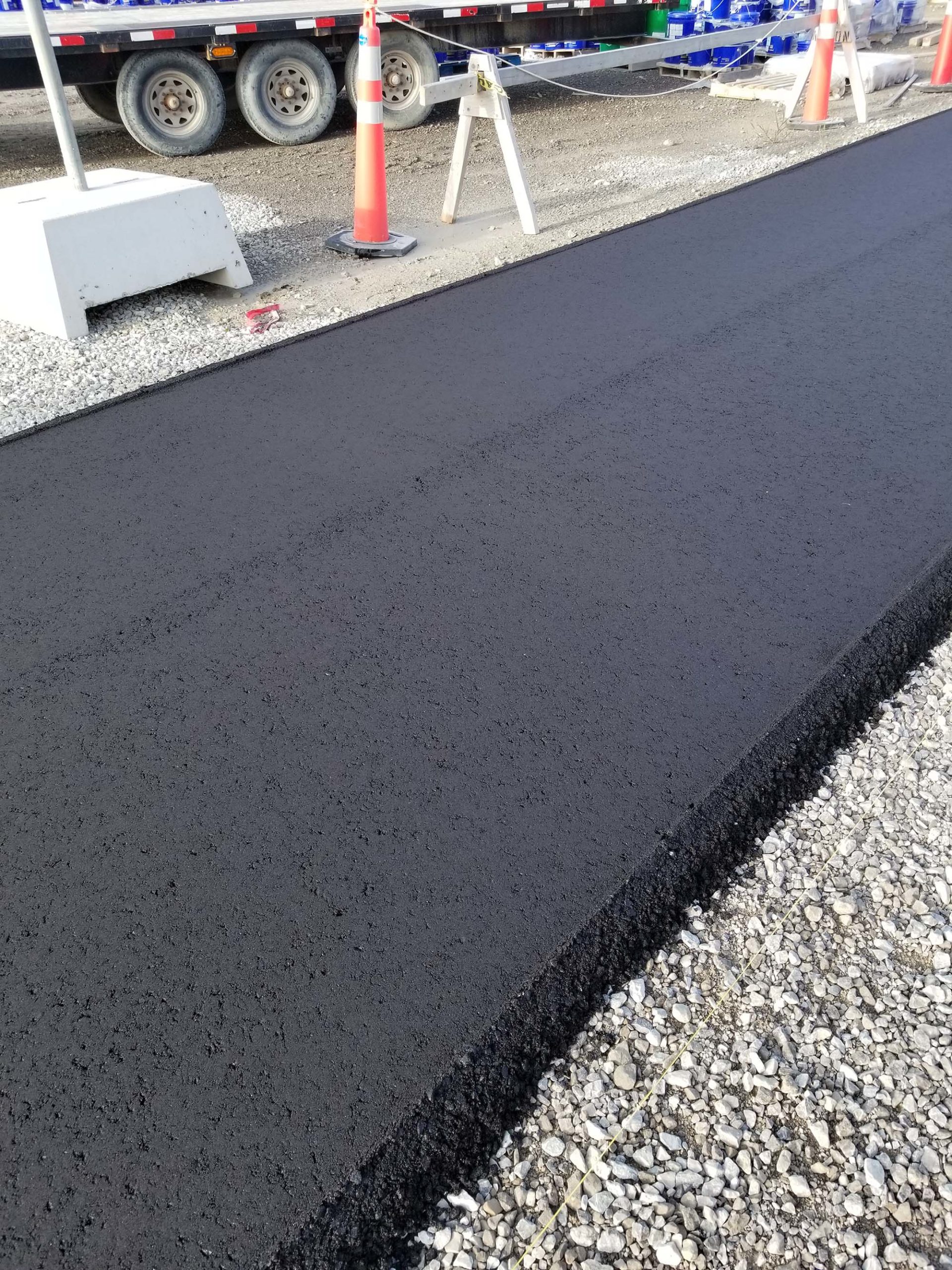

Asphalt:
A mixture of aggregates (crushed rock, sand, or gravel), binder and filler, used to build and maintain roads and parking areas. This is made with petroleum so pricing is driven by fuel costs.
Asphalt Overlay:
A patch placed on top of existing asphalt where some cracking or potholing has occurred. Usually used when the asphalt is only wearing out in patches.
Chip Seal:
Spraying hot tar down on existing asphalt then applying chipped rock on top. This layer is then rolled with a rubber tire roller to pack it into the tar. This adds a layer of rock over the asphalt, giving it extended life. Used for roads and high traffic areas.
Concrete:
A mixture of stone or gravel, sand, cement, and water, that can be spread or poured into molds. Concrete is not made of the same materials or cared for in the same manner as asphalt.
Sealcoat:
A protective coating applied to asphalt-based pavements which provides protection from water, oil, and sun damage. Sealcoating is a preventative measure to protect your asphalt from deteriorating and is recommended every 2-3 years. Also referred to as blacktop sealant.
Slurry Seal:
A thin coating which fills in cracks and surface imperfections to create a uniform color and texture and prevents water damage which causes pavement degradation. Slurry seal contains larger aggregates than sealcoat, so it is usually a slightly thicker coating. Typically used for residential streets with low to moderate distress and narrow crack widths. This is not typically used in Missoula.
Striping:
Traffic paint applied to a parking lot to define traffic flow, parking spaces and more.
Paving:
Covering a surface with asphalt or concrete to form a firm, level surface.
Infrared Asphalt Repair:
A technique to repair asphalt using an infrared heater to warm the damaged asphalt to a malleable state. Then, new asphalt is added and the two combine seamlessly to form a new layer of asphalt fitted perfectly to the surrounding road covering. This eliminates having a seam where water is allowed to penetrate and ultimately cause the asphalt to fail.



